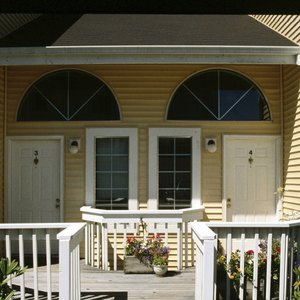
When a tenant rent a house or apartment, the landlord often requires a security deposit. The deposit is held by the landlord as protection against unpaid rent, unpaid bills or damage to the rental unit. The laws and regulations for holding and returning security deposits vary by state. In many states, the maximum security deposit is equal to two months' rent. The landlord must return the deposit or give the tenant written notice of the damages within a specified time period, usually between 21 to 30 days.
Moving In
When the tenant moves in, a careful inspection of the rental unit is often necessary. According to most rental or lease agreements, when tenants move out, they must leave the rental unit in the same condition found at move-in, minus normal wear and tear. At the time of the move-in inspection, the tenant and the landlord prepare a document stating the condition of the house or apartment. Pictures are taken to record the condition of the premises.
Moving Out
Often landlords offer a pre-move-out inspection to the tenants. Problems with the rental unit are identified and the tenant has time to correct the problems before moving out. When the tenant moves out, the landlord will carefully inspect the unit and note any needed repairs or cleaning. The landlord will find any unpaid utility or other bills for which the tenant is responsible. The landlord will also note if the tenant moved out without giving proper notice, or if the tenant owes rent.
Returning the Security Deposit
If the tenant leaves the rental unit in satisfactory condition and gives proper notice, the landlord will return the security deposit. However, if the tenant, members of the household or guests have caused physical damage to the unit, the landlord will deduct the cost of repairing the damage from the security deposit. If the rental unit requires cleaning, the expenses will be deducted from the security deposit. Cleaning can involve a number of activities, including cleaning the carpet, floors, drapes, walls, windows and appliances. If the tenant moves out without adequate notice, the landlord may deduct the loss of rent from the security deposit.
Notice to Tenants
A statement about the security deposit is usually mailed to the tenants shortly after they move out. The statement includes the amount of the deposit and an itemized list of deductions. The security deposit is returned, minus lawful deductions. If the tenant owes more than amount of the deposit because of unpaid bills, damage or cleaning, the landlord may bill the tenant for the difference. If the tenant does not pay the bill, the landlord may sue the tenant to recover the money owed.
References
- Joint Center for Housing Studies at Harvard University. "America's Rental Housing 2020," Page 9. Accessed March 20, 2020.
- Nolo. "State Laws on Landlord's Access to Rental Property." Accessed March 20, 2020.
- Nolo. "How Evictions Work: Rules for Landlords and Property Managers." Accessed March 20, 2020.
- U.S. Department of Housing and Urban Development. "Housing Discrimination Under the Fair Housing Act." Accessed March 20, 2020.
Writer Bio
Kim Dieter has taught agriscience classes, developed curriculum and participated in the school accreditation process at the secondary and community college levels since 1980. She holds a Master of Science degree from the University of California, Davis, in animal science.

